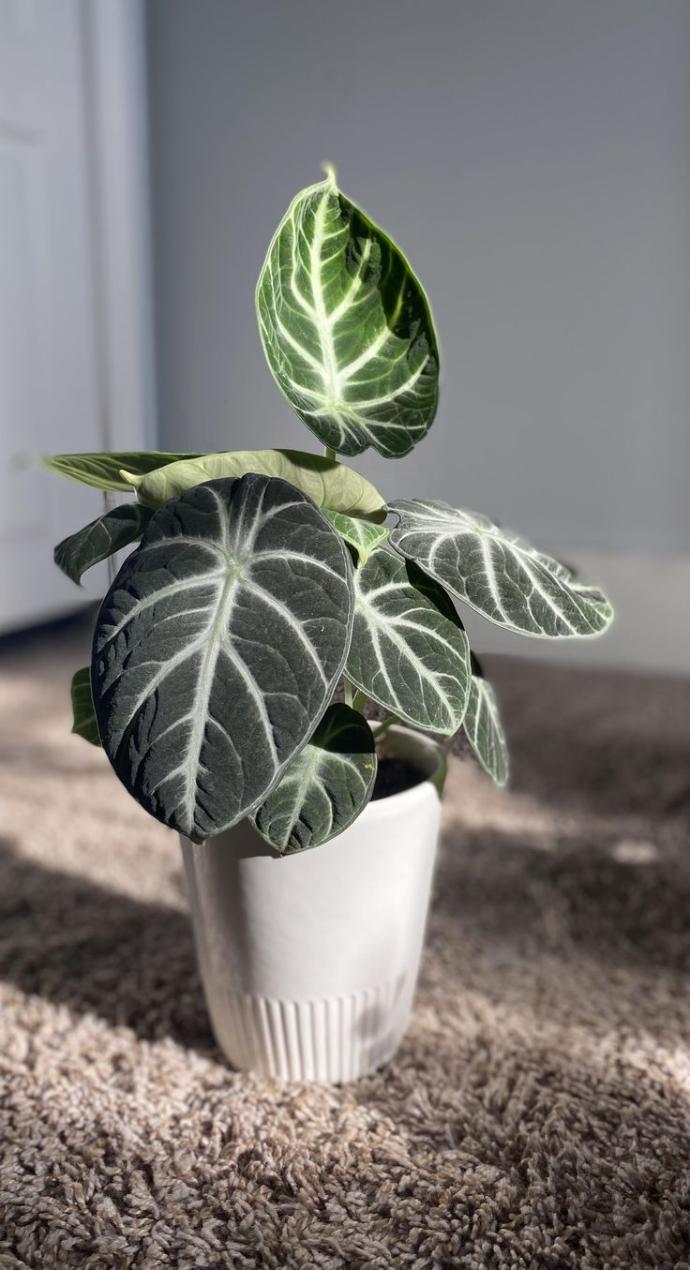Alocasia black velvet Plant

Habit
Herbaceous
Height
Short
Growth
Slow
Soil
Well-drained
Shade
Partial
Moisture
Moderate
Edible
No
Medicinal
No
Origin
Southeast Asia
Climatic Condition
Tropical, Humid
Temperature (°)
18-30
Humidity (%)
60-80%
Potting media
Peat+Perlite
Fertilizers
Balanced NPK(10:10:10)
Watering
Keep Moist, Not Soggy
Plant Weight
200-400 g
Flowering Time
Rarely Flowers
Soil Ph level
5.5-6.5
Water Ph level
6.0-7.0
Soil EC
1-2 dS/m
Yield Per Plant
Ornamental
NPK ratio
20:20:20
life Span
1-2 yrs
Health Benefits
Suggested Grow Media or Potting Mix ?
40% loam, 30% sand, 30% compost
Suggested Fertigation/Fertilizers
Apply monthly with liquid organic fertilizer
Common Diseases and Remedies
Leaf Spot, Powdery Mildew, Root Rot, Aphids, Spider Mites.
Yellowing leaves, white coating, wilting, sticky residue.
Prune infected leaves, neem oil, improve air circulation.
HEALTH BENEFITS
The Alocasia Black Velvet is a stunning ornamental plant, primarily grown for its striking appearance. While it is not commonly associated with direct health benefits like medicinal herbs, having it in your home can provide some indirect benefits:
- Air Purification: Like many indoor plants, the Alocasia Black Velvet can help purify the air by absorbing toxins such as formaldehyde and benzene. This can lead to improved air quality and a healthier living environment.
- Mood Enhancement: Being surrounded by plants, especially one as visually striking as the Alocasia Black Velvet, can have a positive effect on mental well-being. The presence of greenery has been linked to reduced stress and anxiety, boosting overall mood.
- Increased Humidity: The plant can help increase indoor humidity by releasing moisture into the air through a process known as transpiration. This can be beneficial for skin hydration and respiratory health, especially in dry climates.
- Aesthetic Value: While not a direct health benefit, the beauty of the plant can improve the aesthetic of your space, creating a more pleasant environment that promotes relaxation and well-being.
However, be cautious, as the plant is toxic if ingested by pets or humans. Keep it out of reach of children and animals.